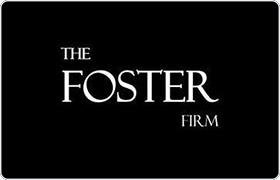Panama City Felony Lawyer, Florida, page 4
Sponsored Law Firm
-
 x
x

Click For More Info:
-
The Foster Firm
42 Business Centre Drive Suite 301 Miramar Beach, FL 32550» view mapCriminal Defense Law We Will Protect Your Rights!
Our law firm has been operating for more than 15 years and our team has numerous years of experience between them, to ensure you get the best legal advice possible.
800-940-3710
Not enough matches for Panama City Felony lawyer.
Below are all Panama City Criminal lawyers.
Tanya Jean Higgins
Other, Industry Specialties, DUI-DWI, Criminal
Status: In Good Standing Licensed: 30 Years
Russell Kevin Ramey
Family Law, Divorce & Family Law, Criminal
Status: In Good Standing Licensed: 40 Years
 James J. Foster Miramar Beach, FL
James J. Foster Miramar Beach, FL Practice AreasExpertise
Practice AreasExpertise
